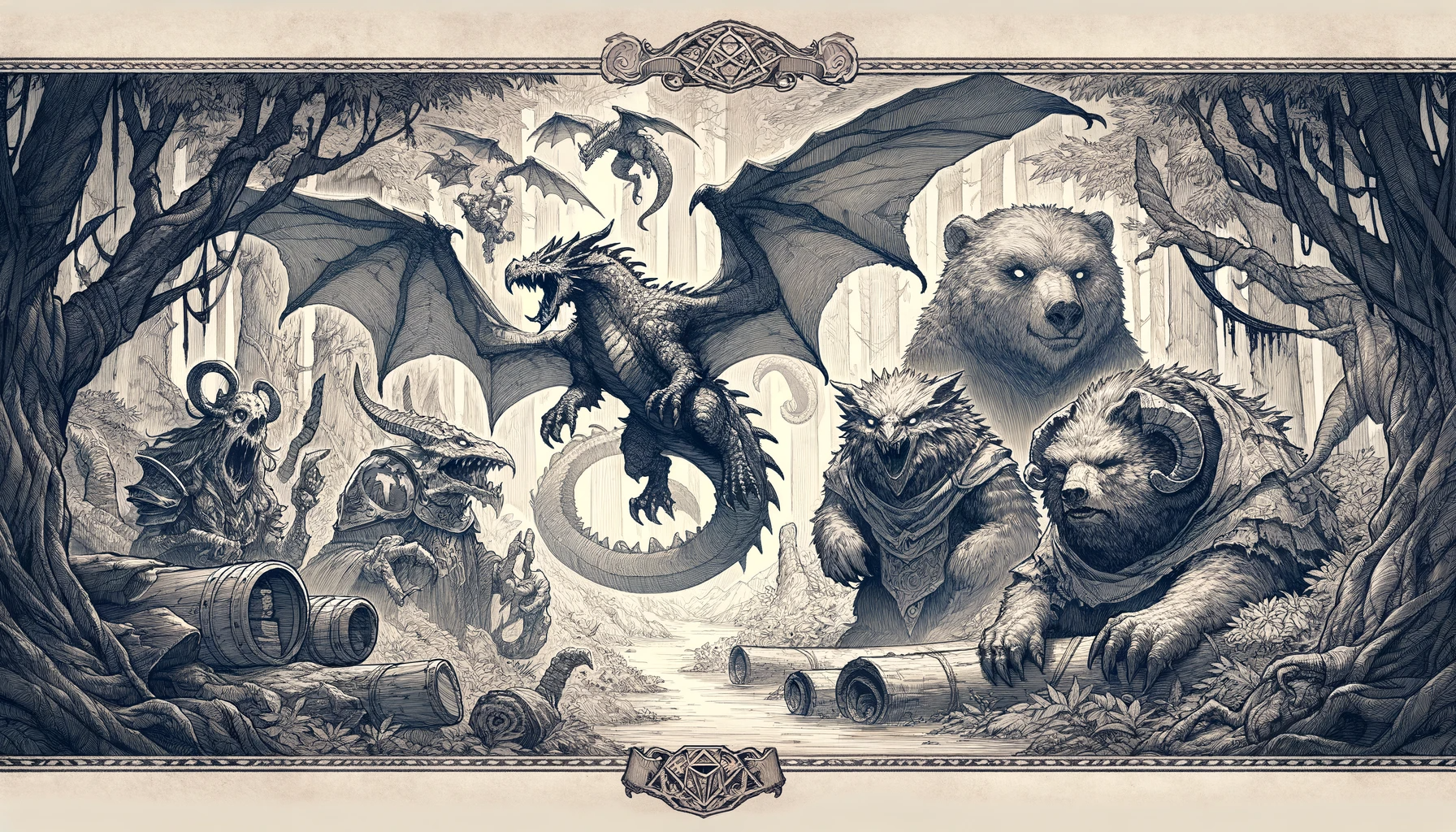TSR2159 - Chapter 1
Chapter 1 - Player Character Ability Scores
To venture into the worlds of the AD&D game, you first need to create a character. The character you create is your alter ego in the fantasy realms of this game, a make-believe person who is under your control and through whom you vicariously explore the world the Dungeon Master (DM) has created.
Each character in the AD&D game has six abilities: Strength, Dexterity, Constitution, Intelligence, Wisdom, and Charisma. The first three abilities represent the physical nature of the character, while the second three quantify his mental and personality traits.
In various places throughout these rules, the following abbreviations are used for the ability names:
Strength - Str; Dexterity—Dex; Constitution—Con; Intelligence—Int; Wisdom—Wis; Charisma—Cha.
Rolling Ability Scores
Let’s first see how to generate ability scores for your character, after which definitions of each ability will be given.
The six ability scores are determined randomly by rolling six sided dice to obtain a score from 3 to 18. There are several methods for rolling up these scores.
Method I: Roll three six-sided dice (3d6); the total shown on the dice is your character’s Strength ability score. Repeat this for Dexterity, Constitution, Intelligence, Wisdom, and Charisma, in that order. This method gives a range of scores from 3 to 18, with most results in the 9 to 12 range. Only a few characters have high scores (15 and above), so you should treasure these characters.
Alternative Dice-Rolling Methods
Method I creates characters whose ability scores are usually between 9 and 12. If you would rather play a character of truly heroic proportions, ask your DM if he allows players to use optional methods for rolling up characters. These optional methods are designed to produce above-average characters.
Method II: Roll 3d6 twice, noting the total of each roll. Use whichever result you prefer for your character's Strength score. Repeat this for Dexterity, Constitution, Intelligence, Wisdom, and Charisma. This allows you to pick the best score from each pair, generally ensuring that your character does not have any really low ability scores (but low ability scores are not all that bad any way!).
Method III: Roll 3d6 six times and jot down the total for each roll. Assign the scores to your character's six abilities however you want. This gives you the chance to custom-tailor your character, although you are not guaranteed high scores.
Method IV: Roll 3d6 twelve times and jot down all twelve totals. Choose six of these rolls (generally the six best rolls) and assign them to your character's abilities however you want. This combines the best of methods II and III, but takes somewhat longer.
As an example, Joan rolls 3d6 twelve times and gets results of 12, 5, 6, 8, 10, 15, 9, 12, 6, 11, 10, and 7. She chooses the six best rolls (15, 12, 12, 11, 10, and 10) and then assigns them to her character's abilities so as to create the strengths and weaknesses that she wants her character to have (see the ability descriptions following this section for explanations of the abilities).
Method V: Roll four six-sided dice (4d6). Discard the lowest die and total the remaining three. Repeat this five more times, then assign the six numbers to the character's abilities however you want. This is a fast method that gives you a good character, but you can still get low scores (after all, you could roll 1s on all four dice!).
Method VI: This method can be used if you want to create a specific type of character. It does not guarantee that you will get the character you want, but it will improve your chances. Each ability starts with a score of 8. Then roll seven dice. These dice can be added to your character's abilities as you wish. All the points on a die must be added to the same ability score. For example, if a 6 is rolled on one die, all 6 points must be assigned to one ability. You can add as many dice as you want to any ability, but no ability score can exceed 18 points. If you cannot make an 18 by exact count on the dice, you cannot have an 18 score.
The Ability Scores
The six character abilities are described below. Each description gives an idea of what that ability encompasses. Specific game effects are also given. At the end of each ability description is the table giving all modifiers and game information for each ability score. The blue-shaded ability scores can be obtained only by extraordinary means, whether by good fortune (finding a magical book that raises a score) or ill fortune (an attack by a creature that lowers a score).
